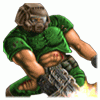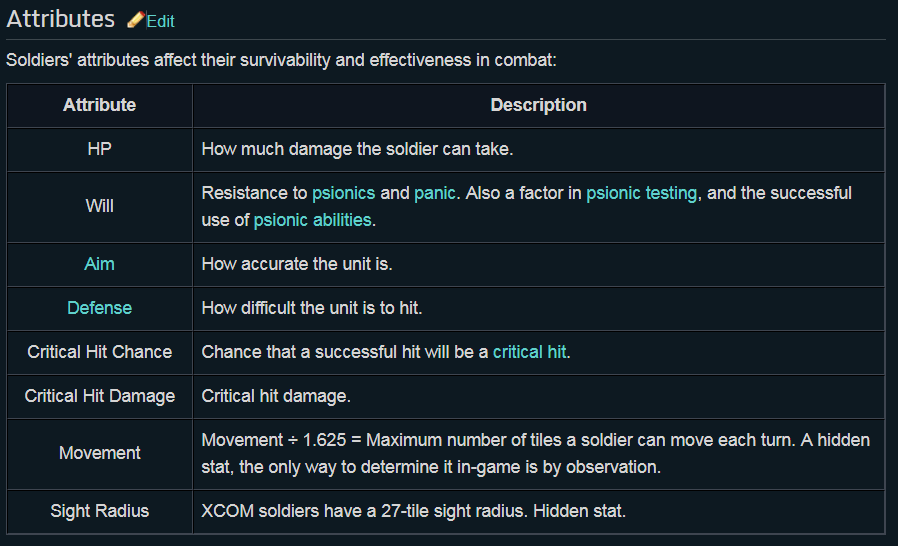17 minutes ago, Noddy92 said:
Richards what i meant when I sad phase combat, it seemed to me like this is the part were you move, or shoot, etc. But I see now that my poor choice of words caused confusion.
In my game I want the player to be able to perform a wide variety of actions, like shooting, aiming at specific part of the body, blind fire, lean and fire, roll, etc. Your idea looks amazing, but now I wonder how to implement it to work with stats. So, my stats are based on JA 2 and Fallout, so you get Strength, Agility, Wisdom, etc. One of my main concerns during the design was how to implement these traits.
If anybody remembers, in old games each stat did something, and agility gave action points (in most games, it contributed one way or the other), so maybe if I go with your idea, higher agility for instance would give more range or time to perform same action, right.
For instance in Jagged Alliance 1 and 2, each mercenary had different action points, based on their stats, with maximum I think was 25. The player was forced to choose the best available person for a specific job. So, how would stats (mainly agility stat) work into all of this? I can't remember did the new XCOM had stats like agility, or time units and how did it work with one-two system. If someone can remind me or explain, that would be great. So far in my project, I'm currently doing AI, and did a simple AP system, but I started having doubts about the system which brings us here.
You should be very careful when considering stats and their role. It can be very tempting to create a bunch of stats and try to find things for them to do, but it is much better to work out what you need to do first, and then decide if you require a new stat for that. Otherwise you end up with things like the luck stat in Fallout which was primary there to allow the developers to spell SPECIAL, and had to be fit into something.
Stats generally control one of three things, the chance of doing something (ie accuracy for your shots), the ability to do something (you need a minimum strength to carry a certain item), or the amount of something you can do (high speeds means you can travel further with a single move action).
Stats also tend to function in pairs, with common ones being accuracy (chance to hit) vs dodge (chance to not be hit), damage (chance to hurt) vs toughness (chance to avoid being hurt) and so on.
From a quick look at what your after you can easily identify a few areas that will need some kind of metric:
Whether an attack hits at range (so, an accuracy stat)
Whether an attack hits in melee (so, the same accuracy stat, or some kind of strength stat)
Whether a defender can avoid being hit / How effective cover use is (so, some dodge stat)
How far a character can move (so, some mobility/speed stat)
How much a character can carry (so, some encumbrance stat)
Where possible, you can group similar abilities together, so an agility stat could cover movement and dodginess, or they can be separate.
You should also strive to balance stats (which can be difficult), so each has one, two or three equal roles. You want to avoid any potential god-stat or dump-stat.
Another important consideration is whether stats can be changed, or if a character is stuck with them, and if you plan to have other items that can make up for or replace your stats. Is it worth me investing in a defence stat if I can get heavy armour later? On the other hand, because I know I can get heavy armour later on, I can focus on a different area for my character, like accuracy.
Again, the best approach is to list out possible actions, see where you can pair and streamline them, and then let that list guide your decisions around stats.









